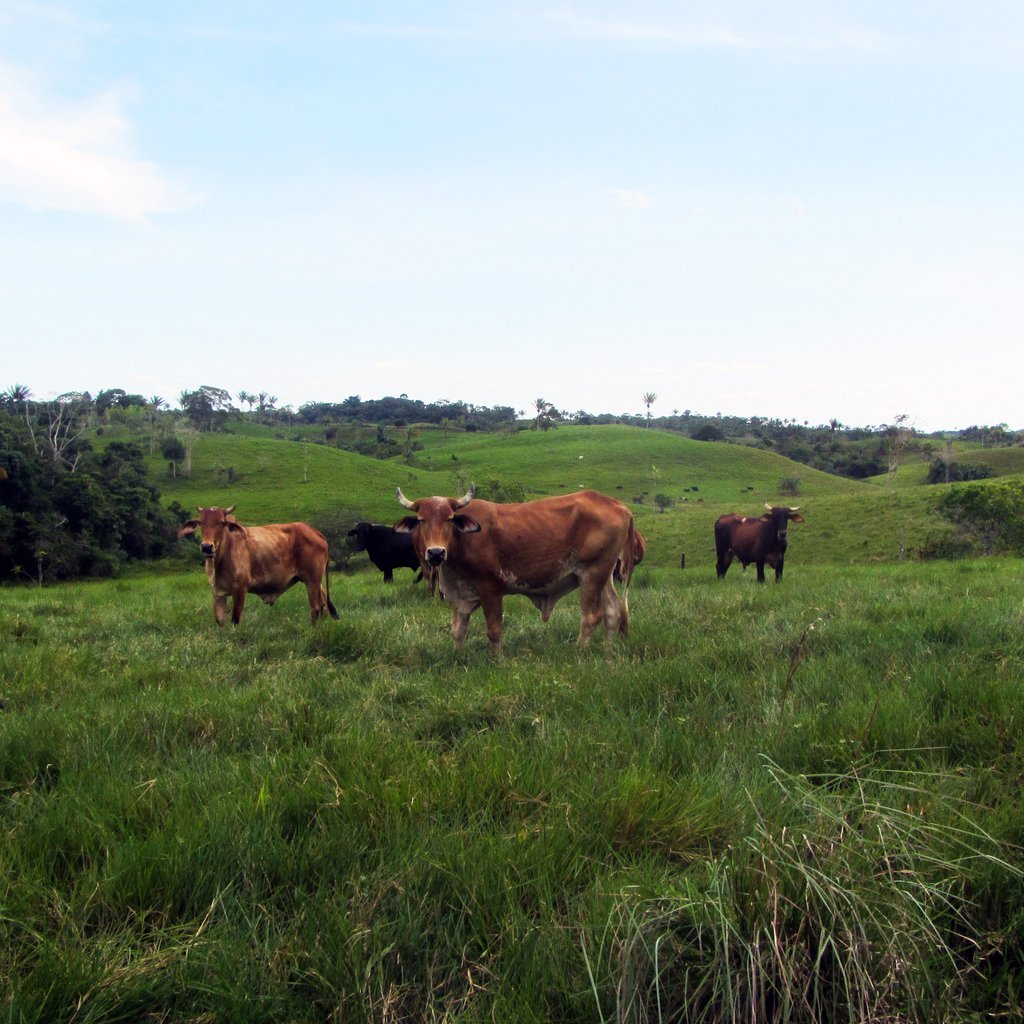Sustainable tropical pastures: Optimize nitrogen supply through integration of legumes and grasses with biological nitrification inhibition (NiTroLeG)
What do we see on the project photo?
The picture shows a cattle herd on a farm of the project. The landscape is characterised by pastures and small patches of native forest. The sustainable management of these pastures reduces deforestation and secures the livelihoods of the producers.
How would you explain to a child what the project is doing?
Pastures in the Colombian Amazon are not fertilised, which reduces grass growth and the cattle have nothing left to eat. For new grazing land for their cattle, farmers are clearing the forest and sowing new pastures. But after a few years they are faced with reduced grass growth again. Our project aims to break this cycle.
What is the project’s main objective?
Improve pasture sustainability by establishing grass legume mixtures and grasses with the ability of biological nitrification inhibition (BNI). The legume can fix nitrogen symbiotically while the grasses with BNI potential can reduce nitrogen losses from the soil.
Why is the project important?
Livestock production is the main economic sector of the studied region. Therefore, the increase of pasture sustainability and productivity positively affects living conditions of the farmer families. Productive pastures increase carbon storage in soils, and the grasses with high BNI potential reduce emissions of nitrous oxide, which is a very potent greenhouse gas. Finally, sustainable pastures can help to reduce the pressure on forests.
What has been the most positive moment during the project?
The field work with the project team and the contact with the farmers. We experienced incredible hospitality.
What have been the biggest challenges encountered in the project?
On-farm research is a real challenge. The high variability between the farms in terms of management and site-specific conditions is also reflected in our results. However, the studying of the pastures with different botanical composition under farmers’ conditions will facilitate the development and propagation of management recommendations.
What is the most important lesson learned from the project?
By using grasses with BNI in a mixture with legumes, yields can be increased, and nitrogen losses reduced at the same time. We can increase the efficiency of the nitrogen cycle without additional labour or fertiliser input.
About the project
Title:
Sustainable tropical pastures: Optimize nitrogen supply through integration of legumes and grasses with biological nitrification inhibition (NiTroLeG)
Contact:
Lorenz Allemann, ETH Zürich
Dr Astrid Oberson, Project Leader, ETH Zürich
Duration:
4 years
Funding institutions:
Swiss National Science Foundation (SNSF)
Implementing institution:
ETH Zürich, Switzerland; Universidad de la Amazonia, Colombia; International Center for Tropical Agriculture (CIAT), Colombia
Links to further information:
https://plantnutrition.ethz.ch/research/nutrients-processes.html

